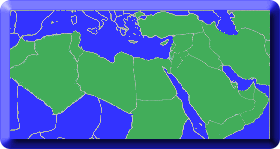
Topics in Middle Eastern and North African Economies
Document Type
Article
Publication Date
5-1-2022
Journal Title
Topics in Middle Eastern and North African Economies
Volume
24
Issue
1
Publisher
Middle East Economic Association and Loyola University Chicago
Abstract
The Paris Agreement (2016) brings hundreds of countries together under an international intention to limit global warming. Currently (December 2021), 193 parties submitted their first long-term trajectories to take action against climate change known as nationally determined contributions (NDCs). The agreement does not put forward a direct action plan but rather leave it to the parties. The agreement is successful in achieving the ultimate aim of creating awareness and setting global and local barriers against emissions. The domestic policies to comply with this supranational agreement to mitigate emissions create new economic challenges hence, NDCs, i.e., emission reduction aims, and the realizations vary according to the Parties. In the light of these developments, this paper analyzes whether there is a convergence in the emissions globally, regionally and according to income levels. Empirical findings suggest convergence in per capita emissions within income groups but diverge globally and regionally except for the EU, which is at the forefront of international agreements to fight climate change. Lastly, certain dates of international agreements do not reflect dramatic changes under treatment effect using difference-in-differences technique.
ISSN
2334-282X
Recommended Citation
Deniz, Pınar, "Convergence in CO2 Emissions". Topics in Middle Eastern and North African Economies, electronic journal, 24, 1, Middle East Economic Association and Loyola University Chicago, 2022, http://www.luc.edu/orgs/meea/
Creative Commons License

This work is licensed under a Creative Commons Attribution-Noncommercial-No Derivative Works 3.0 License.
Copyright Statement
© The Author, 2022



Comments
Presentation of the articles in the Topics in Middle Eastern and North African Economies was made possible by a limited license granted to Loyola University Chicago and Middle East Economics Association from the authors who have retained all copyrights in the articles.